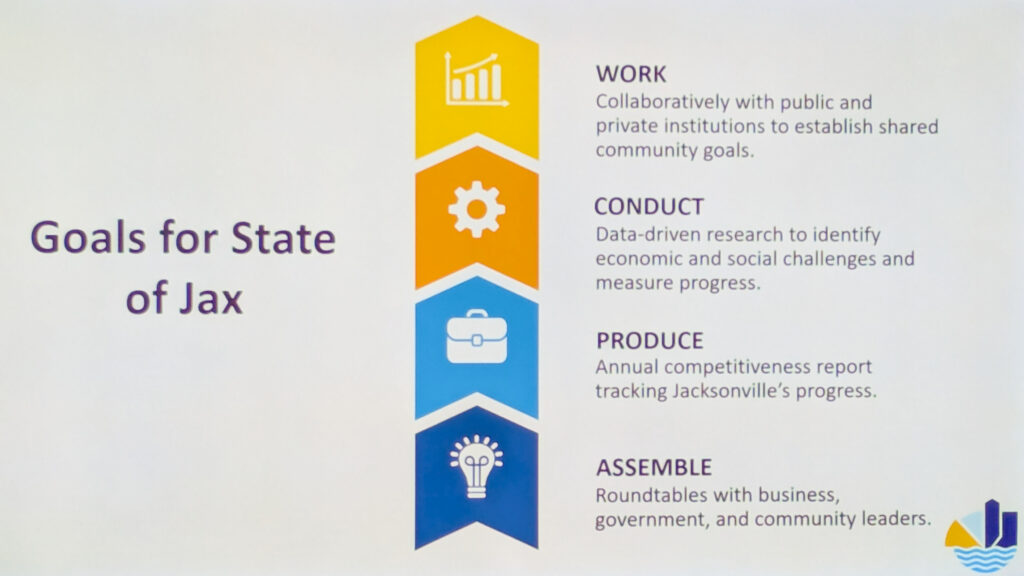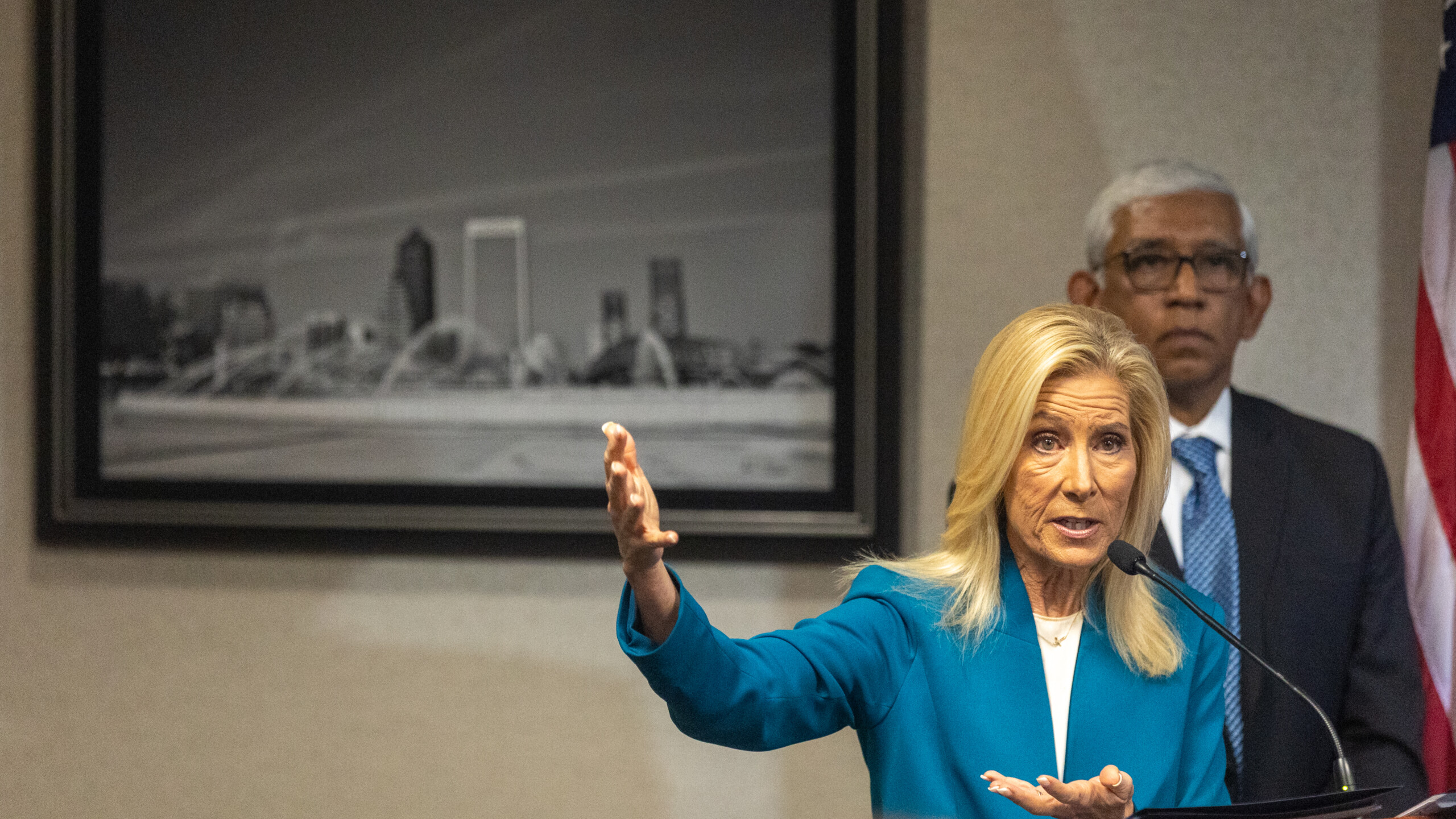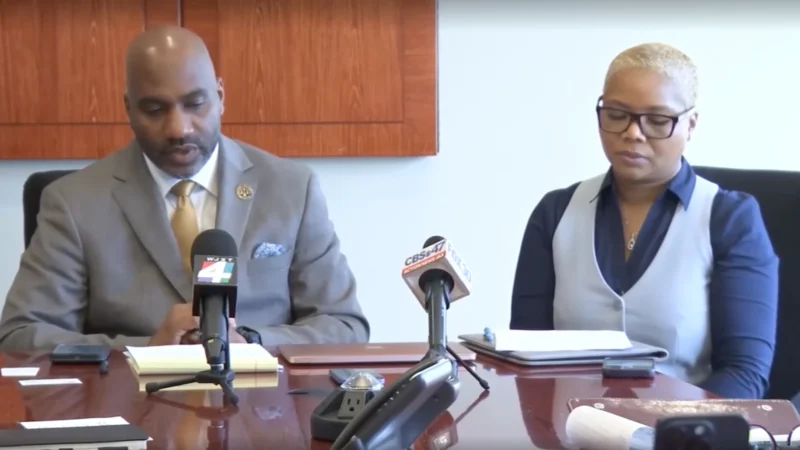Inequity in Jacksonville has been talked about for decades. The new State of Jax data portal may be the tool that helps close those disparities.
Tuesday, Jacksonville Mayor Donna Deegan announced the launch of the portal, offering hard numbers on local discrepancies in life expectancy; access to health care; education outcomes; housing affordability; homeownership; food security and more.
Among its early findings:
- Life expectancy in Council Member Will Lahnen’s district, including the San Pablo and Sandalwood neighborhoods, is nearly nine years greater than in pockets of Northwest Jacksonville.
- More than a third of children in Jacksonville (36.2 %) do not have access to healthy food.
- Only 37% of middle- and high-school students are proficient in reading, on par with the national average but well behind their state peers.
The State of Jax data offers a comparison between the River City and 13 other cities. Louisville, Ky.; Nashville, Tenn.; Indianapolis, Ind.; San Francisco, Philadelphia and Denver were selected because of their consolidated governments. Columbus, Ohio; Charlotte, N.C. and San Antonio were chosen due to their strong financial sectors. Austin, Texas, was picked due to its similar size and tech sector. The data also include Florida’s three other major metros: Miami, Tampa and Orlando.
The mayor’s office says a 22-person advisory committee helped identify which areas to analyze. Representatives included leadership from the region’s large universities, philanthropic organizations, businesses, tech firms, Deegan’s office and Lahnen.
“You have to know you have a problem, how big the problem is and where the problem is before you can really start to address the problem,” Deegan said Tuesday. “…I think it’s a great tool to have to find out what communities, what neighborhoods do we need to focus on.”
“I will say I believe that we’ve done much of that since we’ve been here. We’re talking about making sure we shift our Capital Improvement Project priorities to those areas where there have been historic disinvestments,” she said.
City of Jacksonville Chief of Analytics Parvez Ahmed says the data is publicly available from the U.S. Census Bureau, Bureau of Labor Statistics, Centers for Disease Control, U.S. Department of Housing and Urban Development and more.
That does not mean everyone is included in the count. Last year, Jacksonville Today reported there may be an undercount in Jacksonville’s Latino population. In the 2020 Census, Latinos represented 11.5 % of Jacksonville’s population. That number increased to 12.8% in the 2023 American Community Survey data released by the Census Bureau.
This year, the Jacksonville Immigrant Rights Alliance and local immigration attorneys have raised alarms that the social and political climate may be leading some Latinos avoid interacting with the government to ensure their safety.
And fiscal responsibility nonprofit Florida TaxWatch says 750,000 Floridians of all backgrounds did not participate in the 2020 Census, with the resulting undercount costing Florida a congressional seat.
Ahmed says,“When we look at data, and as the mayor goes around, talks about data with community groups and shares this information, my hope is that more people would be eager to join the conversation, not only on how to make these things better but also respond to a census survey when we have a census survey again.”
The city of Jacksonville hired Kansas City-based mySidewalk to produce the reports. The firm says it has also provided data to help Houston understand its homeless issue and helped the Broward (County) Metropolitan Planning Organization reduce pedestrian fatalities on railroad tracks, among other projects.

Ahmed says future iterations of State of Jax will identify the root cause of Jacksonville’s housing and health care disparities.
904Ward CEO Audrieanna Burgin served on the data advisory committee. Earlier this summer, Burgin told a group of entrepreneurs there is momentum in the city around research and data analysis.
“Who controls the data, controls the narrative,” Burgin said at the time.
UNF President Moez Limayem says cities face a binary choice in the 21st century.
“What separates the winners from the losers is exactly this. It’s the ability to look at the data, leverage on the data and use it to move the needle to progress to make our city the best possible city, a world-class city.”
“We always say that people are entitled their own opinions. They’re not entitled to their own facts. Without facts, our city will just become a group of people with (an) opinion.”







